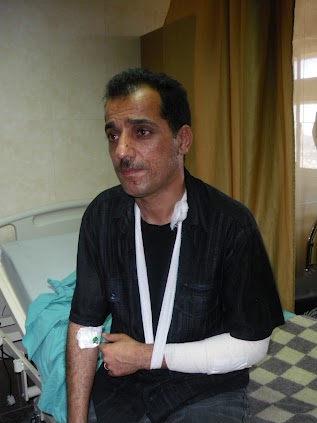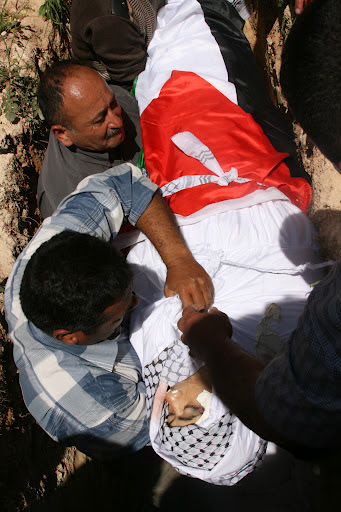Tag: Itamar Settlement
-
Settlers use rocks and sharp tools to attack 50 and 65 year-old farmers in Beit Furik
7th May 2013 | International Solidarity Movement, Beit Furik, Occupied Palestine by ISM Nablus Two olive farmers from the village of Beit Furik, east of Nablus, are recovering from head wounds in a near-lethal attack by colonial-settlers. Although both survived, they are in need of daily check-ups at a clinic in Nablus and are afraid…
-
Settler attack in Aqraba leaves 3 injured, 1 hospitalized
By Ben Greene and Ellie Marton 19 September 2012 | International Solidarity Movement On Monday 17, September, six Israeli settlers from the illegal settlement of Itamar attacked three members of the Benijaber family, who were walking home to the Palestinian village of Aqraba from their olive groves. Maher Hashem Mostafa Benijaber reported that he, his…
-
Fadi Abu Zeitoun, killed as settlers attacked farmers
by Rana H. 9 April 2012 | International Solidarity Movement, West Bank Israeli settlers attacked and chased a group of Palestinian farmers last Thursday, causing a tractor to flip over during the chase, causing the death of the Palestinian driver. On Thursday, April 5th, armed settlers from the illegal Israeli colony of Itamar attacked a…


